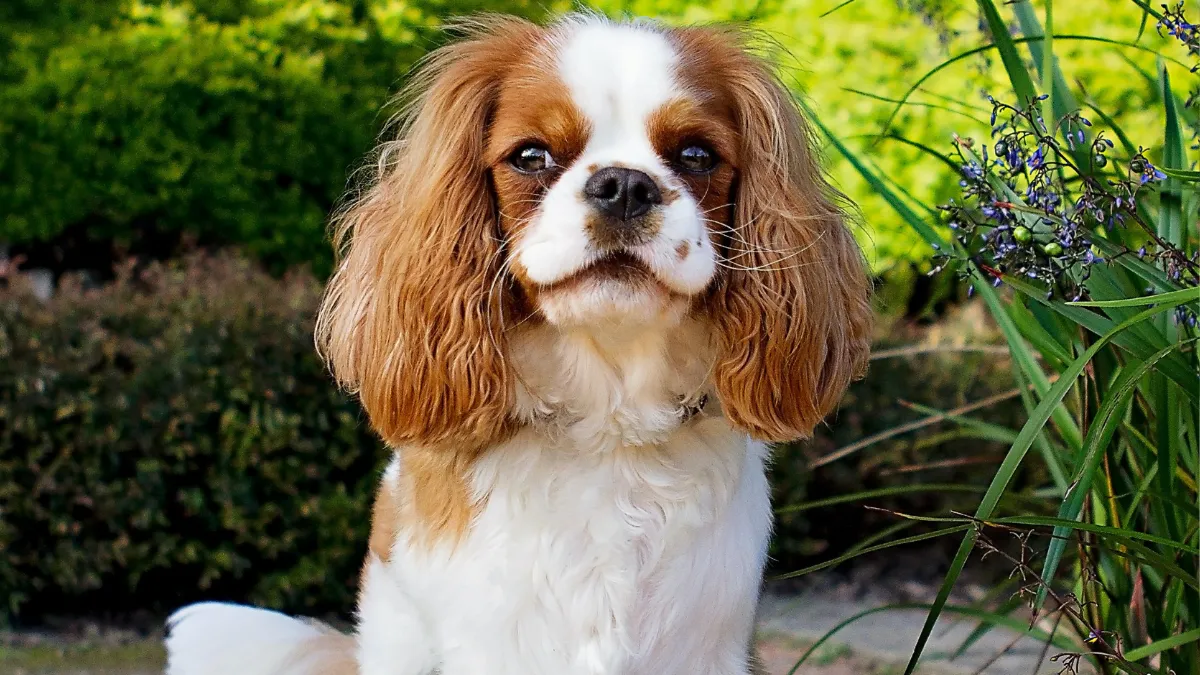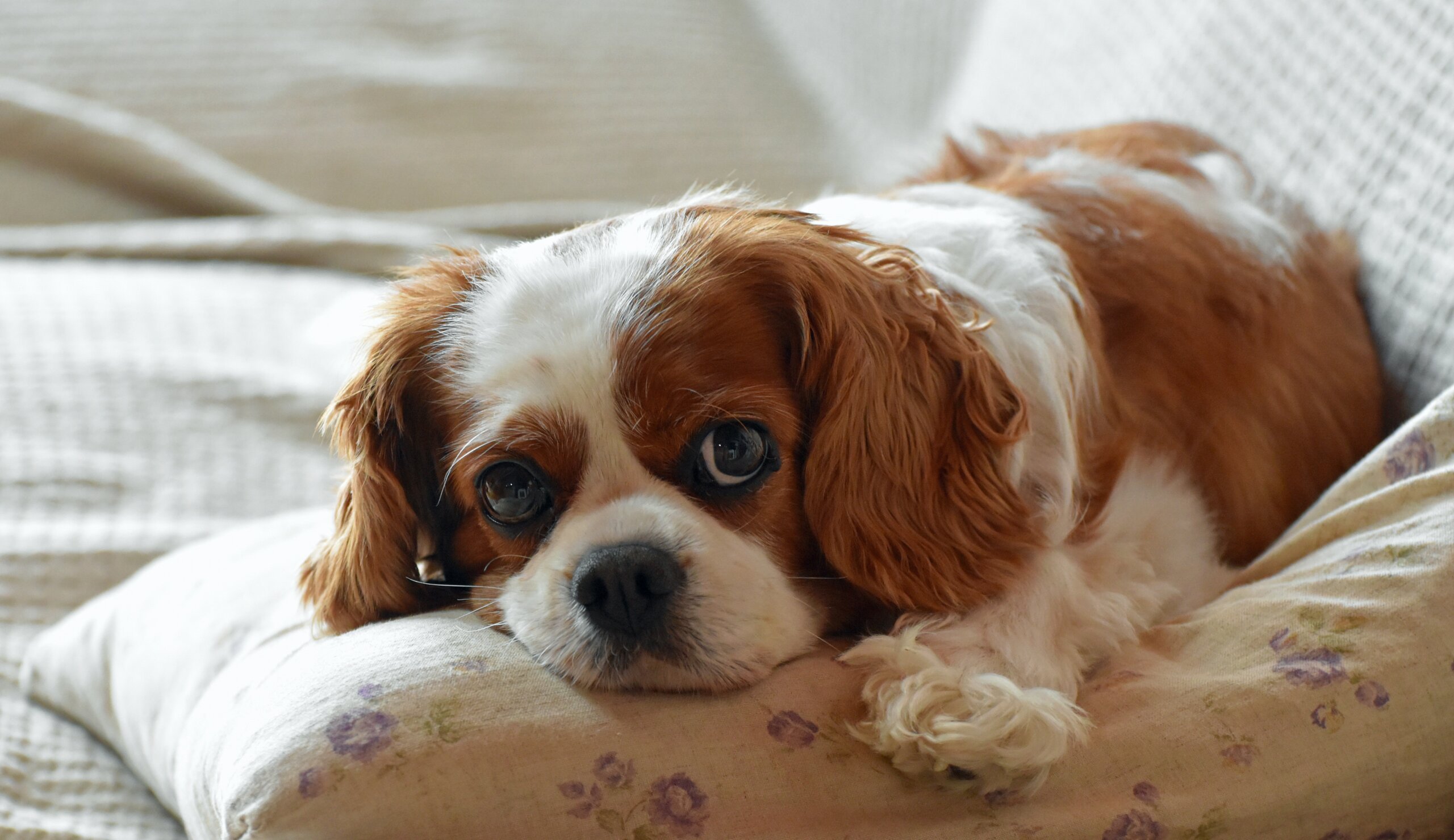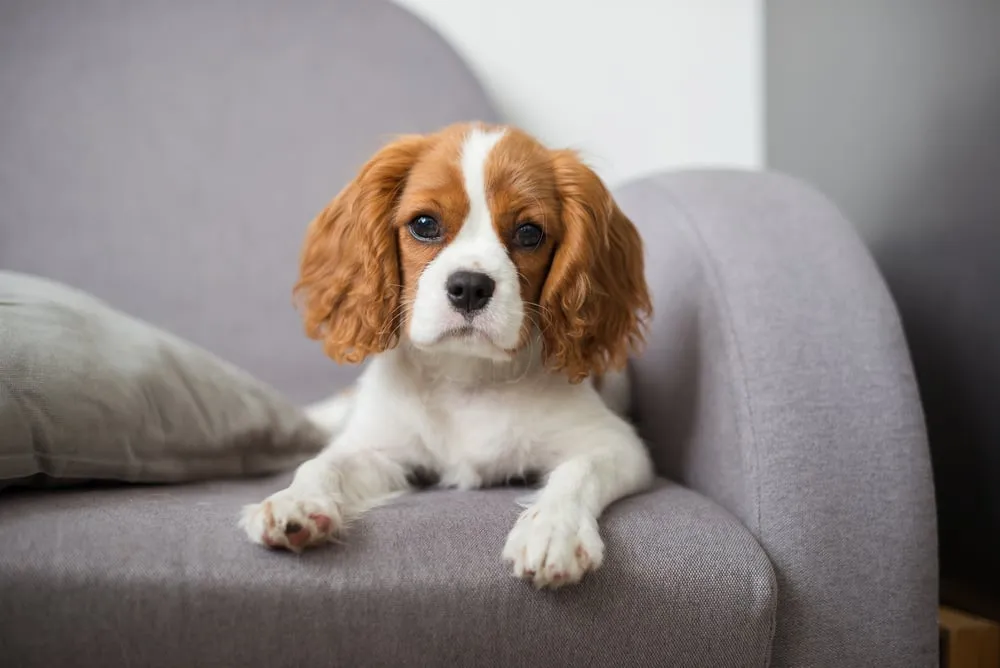If you're contemplating adding a Cavalier King Charles Spaniel to your family but have concerns about leaving them alone, you're not alone in your apprehension. Many potential dog owners ponder the ability of this breed to cope with extended periods of solitude. In this article, we'll delve into the question: Can Cavalier King Charles Spaniel Be Left Alone? We'll provide valuable insights to assist you in making an informed decision about the suitability of this charming breed for your lifestyle and schedule.
Cavalier King Charles Spaniels are known for their affectionate and sociable nature, making them great companions. However, like any dog, they have their own needs and preferences. While they generally enjoy human company, they can also adapt well to being alone if gradually trained from a young age.

Understanding the Breed's Temperament and Behavior
Before we delve into whether Cavalier King Charles Spaniels can be left alone, it's important to understand their temperament and behavior. These adorable dogs are known for their friendly and loving nature. They thrive on human interaction and are highly social animals. They are often referred to as "velcro dogs" because they love to be by their owner's side at all times.
Cavaliers are not typically prone to aggression or destructive behavior when left alone. However, their strong attachment to their owners can result in separation anxiety if not properly managed. This is why it's crucial to establish a routine and gradually train them to be comfortable when left alone.
It's worth noting that while Cavaliers are generally sociable, individual personalities may vary. Some may be more independent and tolerant of alone time, while others may struggle with being away from their owners. Understanding your specific dog's temperament will help you tailor your approach to training and preparing them for alone time.
Can Cavalier King Charles Spaniels Be Left Alone?
The short answer is yes, Cavalier King Charles Spaniels can be left alone, but it depends on various factors. These factors include the dog's age, training, personality, and the duration of time they will be left alone. It's important to consider each of these elements to ensure your Cavalier's well-being when you're not around.
Puppies, in general, require more attention and supervision, and should not be left alone for extended periods. As they grow older and develop a sense of independence, they can gradually be trained to spend time alone. It's crucial to start the training process early to help them adjust and avoid separation anxiety.
Adult Cavaliers can handle being left alone for longer periods, but it's important to assess their individual needs. Some adult Cavaliers may still struggle with being alone, while others may be more independent. It's essential to observe your dog's behavior and make adjustments accordingly.

Factors to Consider When Leaving Your Cavalier King Charles Spaniel Alone
When deciding whether to leave your Cavalier King Charles Spaniel alone, there are several factors to consider. These factors will help you create a safe and comfortable environment for your furry friend while you're away.
First, you need to assess the duration of time your Cavalier will be left alone. Dogs are social animals and need regular human interaction. If you work long hours or have a busy schedule, leaving your Cavalier alone for extended periods may not be suitable for their well-being.
Secondly, consider your dog's age and energy level. Puppies and young Cavaliers have higher energy levels and may require more attention and exercise. If you have a young dog, it's important to ensure they have enough physical and mental stimulation before leaving them alone.
Additionally, assess your dog's health and any specific needs they may have. Cavaliers are prone to certain health issues, such as heart problems and joint conditions. If your dog has any health concerns, it's important to factor them into your decision and make arrangements to accommodate their needs.
Lastly, consider your dog's training and behavior. Well-trained dogs are generally more confident and adaptable when left alone. If your Cavalier has undergone obedience training and is comfortable with basic commands, they may be better equipped to handle alone time.
Training and Socialization for Independence
Training and socialization play a crucial role in preparing your Cavalier King Charles Spaniel for being left alone. It's important to start the training process early and gradually expose your dog to alone time.
Begin by establishing a routine that includes short periods of alone time. Start with just a few minutes and gradually increase the duration as your dog becomes more comfortable. Reward your dog with treats and praise for good behavior during these training sessions.
It's also beneficial to create a dog-friendly environment that provides comfort and mental stimulation. Leave your dog with toys, puzzles, or interactive feeders to keep them occupied while you're away. This will help distract them from any anxiety or boredom they may experience.
Socialization is equally important for developing your Cavalier's independence. Expose your dog to different environments, people, and other animals to help them become more well-rounded and confident. This will contribute to their ability to handle being alone without becoming overly anxious.

Providing Mental and Physical Stimulation While You're Away
To ensure your Cavalier King Charles Spaniel remains content and occupied while you're away, it's crucial to provide them with mental and physical stimulation. Boredom can lead to destructive behavior and anxiety, so it's essential to keep your dog engaged.
Leave your dog with puzzle toys or treat-dispensing toys that require mental effort to access a reward. These toys can keep your dog entertained and mentally stimulated for hours. Additionally, consider providing a variety of toys to keep them engaged and prevent boredom.
Physical exercise is equally important for your Cavalier's well-being. Ensure your dog gets enough exercise before you leave, whether it's a walk, playtime in the backyard or a game of fetch. A tired dog is more likely to relax and rest when left alone.
If your schedule allows, consider hiring a dog walker or enrolling your Cavalier in doggy daycare for socialization and additional exercise. This can provide them with the necessary physical and mental stimulation when you're unable to be there.
Separation Anxiety in Cavalier King Charles Spaniels
Separation anxiety is a common issue in many dogs, including Cavalier King Charles Spaniels. These dogs form strong bonds with their owners and can become distressed when left alone. It's important to recognize the signs of separation anxiety and address them appropriately.
Signs of separation anxiety may include excessive barking, destructive behavior, pacing, excessive drooling, or attempts to escape. If you notice any of these signs, it's crucial to address the issue and seek professional help if necessary.
There are various techniques and strategies to help manage separation anxiety in Cavaliers. Gradual desensitization, counter-conditioning, and positive reinforcement training can all contribute to reducing anxiety and helping your dog feel more comfortable when left alone.

Tips for Gradually Increasing Alone Time
When training your Cavalier King Charles Spaniel to be comfortable when left alone, it's important to take a gradual approach. Abruptly leaving your dog alone for long periods can lead to anxiety and stress. Here are some tips to help you gradually increase alone time:
- Start with short periods of alone time and gradually increase the duration.
- Create a safe and comfortable space for your dog when you're away.
- Use positive reinforcement, such as treats and praise, to reward good behavior during alone time.
- Practice leaving and returning to your home without making a big fuss. This helps your dog understand that your departure is not a cause for concern.
- Use interactive toys or treat puzzles to keep your dog occupied and distracted while you're away.
Remember, every dog is different, and it's important to tailor your approach to your Cavalier's individual needs and temperament. Patience, consistency, and positive reinforcement are key to successfully training your dog to be comfortable when left alone.
Alternative Options for Leaving Your Cavalier King Charles Spaniel Alone
If your Cavalier King Charles Spaniel struggles with being left alone, there are alternative options to consider. These options can help ensure your dog's well-being and provide them with companionship when you're unable to be there.
One option is to hire a dog sitter or dog walker who can spend time with your Cavalier while you're away. This can provide your dog with human interaction and help alleviate any anxiety they may experience.
Another option is enrolling your dog in doggy daycare. Doggy daycare facilities offer socialization, exercise, and companionship for your Cavalier when you're unable to be there. This can be a great solution for dogs that thrive on social interaction.
Lastly, consider adopting a second dog as a companion for your Cavalier. Cavaliers generally get along well with other dogs and having a furry friend can help alleviate separation anxiety. However, it's important to assess your ability to care for two dogs and ensure they are compatible before making this decision.

Conclusion: Finding the Right Balance for Your Dog's Well-being
In conclusion, the question "Can Cavalier King Charles Spaniel Be Left Alone" has a nuanced answer. While they can manage solitude with careful consideration, training, and preparation, understanding your dog's temperament is crucial. Providing ample mental and physical stimulation, along with gradually increasing alone time, are key factors for ensuring your Cavalier's well-being during your absence. Consider these aspects to make informed decisions about leaving your Cavalier King Charles Spaniel alone, balancing their independence with their need for companionship and stimulation.
Remember to assess your dog's individual needs and make adjustments accordingly. If your Cavalier struggles with being alone, consider alternative options such as hiring a dog sitter or enrolling them in doggy daycare.
With the right approach and care, your Cavalier King Charles Spaniel can adapt to being alone and thrive in your absence. It's all about finding the right balance between companionship and independence for a happy and healthy furry friend.




